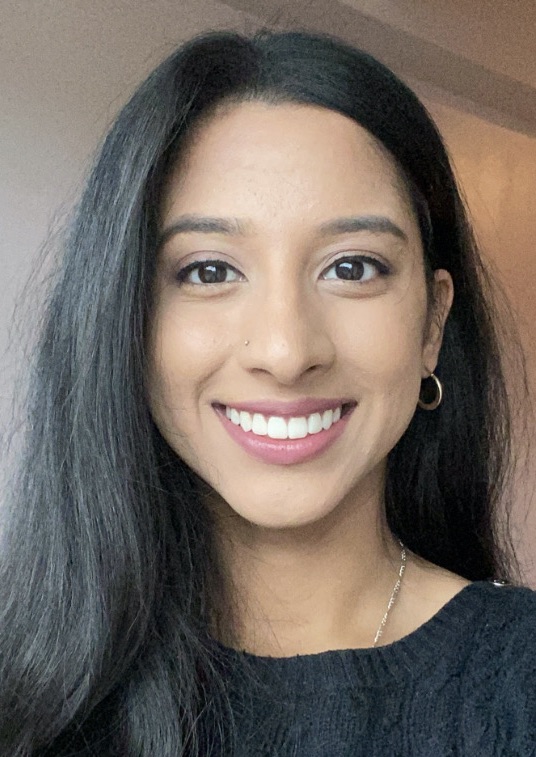Cha Talks

By Manvir Sandhu
Cha Talks is a trauma-informed addiction health intervention in the Southeast Michigan Sikh-Punjabi immigrant population. This project worked to de-stigmatize the culture & language around mental illness and addiction, in a community that has survived multiple generation-wide traumatic events: decolonization during the Indian Partition of 1947; ethnoreligious violence in the Sikh Genocide of 1984; and mass migration out of Punjab during the late 20th to 21st century. Seva4Everybody was the community partner for this project. S4E is a Sikh service organization based in Detroit, which has a focus on engaging young adults in social, economic, and educational programs.
The Cha Talks series was a 4 part group discussion that covered these topics in a specific order: culture & identity, mental health, intergenerational trauma, addiction. This was done to put the difficult topics of trauma and addiction in context of a shared experience. Though all participants came from varied socioeconomic, educational, and familial backgrounds, they all had this intergenerational history in common. Special care was taken from the beginning of the project to establish trust between the program and the Southeast Michigan Sikh-Punjabi community.
Recruitment for participants was done on the Seva4Everybody Instagram. Further outreach in the community was also done on this platform, with weekly discussions held on Instagram Stories aligned with the topics of Cha Talks. A question was posed through the Q&A feature and followers were able to anonymously respond directly to the Story, which sparked conversations that were available for public view. The purpose of the Instagram Story takeovers was to nurture engagement from those young adults who did not feel comfortable attending Cha Talks, but still had a powerful story to share. The exchange of personal experiences and vulnerable openness from all those who participated in Cha Talks or the Story takeovers began a conversation that soon grew past the borders of this Fellowship project– and has become an organic part of the social environment in this community of young adults.
Facts and Figures
- 4 sessions of 2.5 hour Zoom sessions
- 27 total participants, with an average of 10-12 attending each session
- Target demographic for Cha Talks series: Sikh-Punjabi adults age 18-30 years
- 7 weekly Instagram Story takeovers, with 8+ respondents
- 100% of respondents for the survey on Session 3: Intergenerational Trauma said someone in three generations of their family: experienced the death of a child; experienced abuse or domestic violence; experienced sexual violence.
- 75% of respondents for the survey on Session 3 said they have witnessed a parent or grandparent experience a traumatic event.
Impact on Participants
Community Building: Friendships developed outside of the confines of Zoom. Participants held the stories everyone shared with great respect, thanking each other for their openness. Individuals often reached out to me after a session to discuss its impact on them. They explained how they used ideas from other participants to navigate family dynamics made dysfunctional by stress and addiction.
Conversation Starting: These sessions were merely facilitated by me, usually lasting longer than the scheduled time, and the discussion took turns that the participants initiated themselves. This was a true case of “if you build it, they will come”– I provided a Zoom link and a structure, this community of young adults did the rest.
Individuals who wanted to attend, but were unable to, engaged me in conversation when we ran into each other. They expressed their thoughts on these topics and ideas they had to heal our community, creating ad hoc “discussion groups” in social settings.
“The experience was ultimately both therapeutic and crucial in breaking barriers of what can and cannot be discussed among the diaspora.”
“I think everyone thoroughly enjoyed having a safe space to share their thoughts.”
Next Steps
As we plan for the next form of community engagement around addiction & trauma, a resource network will be established consisting of existing counseling services and assistance programs that individuals can be directed towards. These are difficult conversations and those who are participating find themselves stripping away a layer of protection over their trauma, which cannot be left without support.
The next iteration of this series is planned for the early summer. Participants will commit to 75% of all sessions in order to foster a greater sense of connection and benefit fully from the structure of the program. The next target population for the Cha Talks series will be those in the Millennial generation, who experienced the epoch of post-9/11 racial tension in the United States.
Manvir Sandhu is a Schweitzer Fellow and student at Wayne State University School of Medicine
Tags: Schweitzer Fellowship